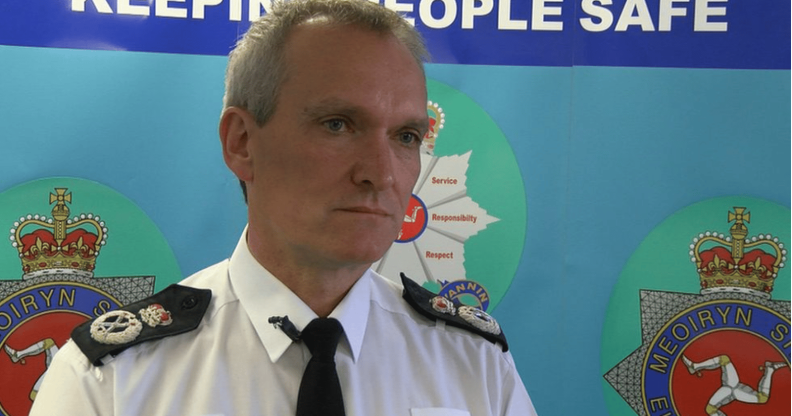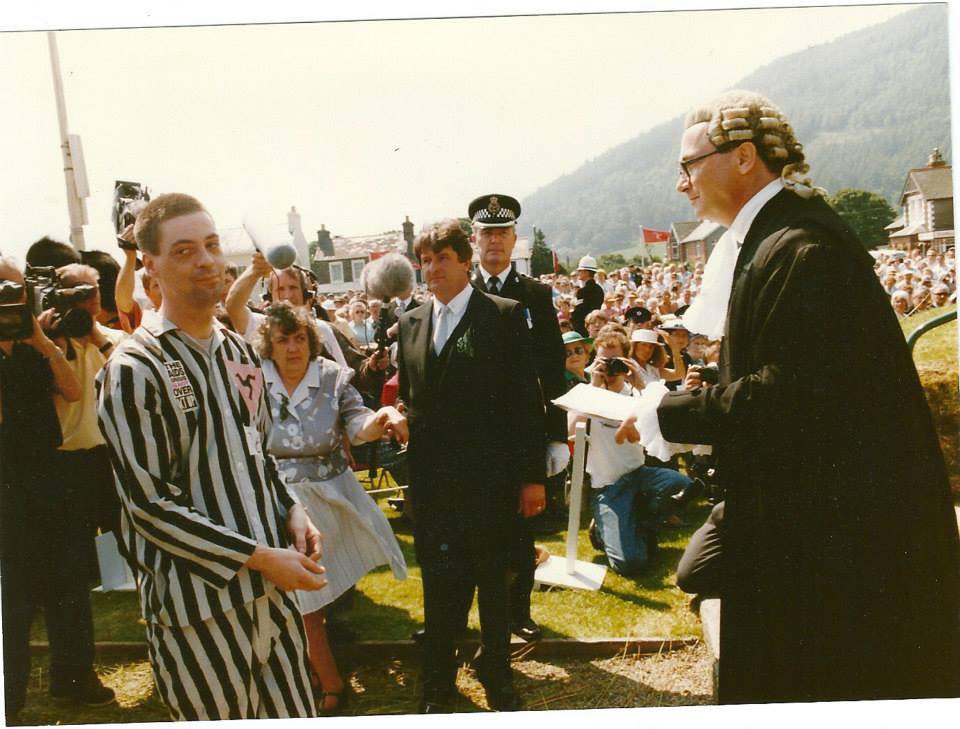Isle of Man police issues long-overdue apology for ‘harmful’ treatment of LGBTQ+ people

Isle of Man chief constable Gary Roberts (BBC)
Isle of Man police has issued an apology for the way historical anti-gay laws were enforced on the island 30 years ago.
In a letter to the Isle of Pride group, chief constable Gary Roberts apologised “for the way that the law was sometimes enforced”, which “caused harm to some people”.
He said some LGBTQ+ people on the Isle of Man “feel that the way that the police treated them was so profoundly wrong as to make them fear, distrust or even hate the constabulary”.
This was something that caused him “deep and lasting regret”.
Despite England and Wales partially decriminalising homosexuality in 1967, the Isle of Man did not follow suit until 1992.
Roberts added: “While I cannot apologise for the act of enforcing the law… I can and will apologise for the way that the law was sometimes enforced.”
Roberts praised the “courage and determination” of LGBTQ+ campaigners on the island. He added they had “fought long and hard for what is right”.

Alan Shea at an LGBTQ+ rights demonstration in 1991 (Alan Shea)
LGBTQ+ rights campaigner Alan Shea, who campaigned for the decriminalisation of homosexuality in 1991, welcomed the letter, adding that it was “time to heal”.
Shea, 59, told PinkNews that campaigners had been “fighting for this for a very long time”, with many arrested.
He explained that a young man took his own life in the 1980s during a “crusade” against the LGBTQ+ community. His mother had been “waiting for this apology” for 30 years, he added.
Now she had accepted the apology, he would stop campaigning.
“Once she accepted the apology, then we would accept the apology,” he told PinkNews.
“I’m very grateful that the police have done it, it took a long time for that to happen.
“It’ll give some relief to the parents who’ve lost their children.”
He said that police treatment of the LGBTQ+ community in the 1980s was a “horror story”. The apology meant it is now “time to move on”, he added.
“We have to heal, because if you don’t heal now it’s never going to happen,” he said.
The letter, which was read publicly by Isle of Pride committee member Clare Barber, follows Isle of Man’s decision to pardon queer men who were convicted under historic sex laws in June.
Jane Poole-Wilson, the Isle of Man’s minister for justice and home affairs, said, with pardons issued to queer men convicted under the historic laws, she hoped society had become “more inclusive”.
“Our society has progressed and become much more inclusive and tolerant than when these discriminatory laws were in place. But we still have work to do to protect everyone in our community,” she said.

